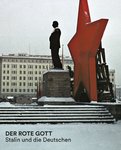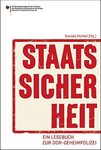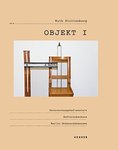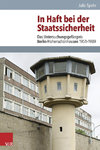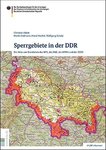Kategorien
- Gedenkstätte Berlin-Hohenschönhausen
- Gedenkstätte Point Alpha
- Unterrichtsmaterialien / Schule
- Wissenschaftliche Reihen
- Friedliche Revolution und Deutsche Einheit
- Biographie / Briefe / Tagebücher
- Kinder- und Jugendbücher
- Aufarbeitung
- Grenze - Mauer & Mauerbau
- Denkmalpflege und Forschungen innerdeutsche Grenze
- Haft & Verfolgung
- Opposition & Diktatur
- Politik & Jüngste Geschichte
- Schriftsteller / Literatur
- Ausreise, Flucht, Vertreibung & Versöhnung
- DVD Video Audio CD
- UdSSR, Rußland, Korea, China & Kuba
- Leben in der DDR
- Sport im Sozialismus
- Nationalsozialismus
- Geheimdienste
- Bildbände
- Außergewöhnliche Verlage
- Nationale Volksarmee, Volkspolizei und Volksmarine
- Kriege und Revolutionen
- Thema: Erster Weltkrieg
- Fremdsprachige Bücher/ english Books / france/ italiano
- Graphic Novel
- Najnowsza historia Polski
- Impressum
Links
Produktsuche
Warenkorb
Ihr Warenkorb ist leer.
Das Besondere Buch
*
Preise inkl. MwSt.
Bücher liefern wir innerhalb Deutschlands ab einem Bestellwert von 20,00 EUR versandkostenfrei.
Wir behalten uns den Verkauf gegen Vorkasse bei Neukunden mit Bestelladresse außerhalb von Deutschland, Schweiz und Österreich vor.
Kategorien UdSSR, Rußland, Korea, China & Kuba Persona non grata: Als Diplomat im revolutionären Kuba von Jorge Edwards
Persona non grata: Als Diplomat im revolutionären Kuba von Jorge Edwards
Artikel-Nr.: 9783492250092
9,00 €
Preis inkl. MwSt.
From Publishers Weekly
This mordant, ironic memoir by Chilean diplomat/novelist Edwards was the first critical evaluation of Cuba by a left-wing Latin American intellectual and caused a scandal among Western Leftists when it appeared in 1973. American publishers optioned the book but "ended up opting out," explains Edwards. Then a Chilean publisher published it here, but the enterprise floundered and the book "never even reached the bookstores." Appointed by the Allende government in 1970, Edwards was Chile's first diplomatic representative to Cuba. Though he spent just three and a half months on the island, he became aware of both an increased repression of intellectuals and also of the growing failure of the moral incentives of socialism. His meetings with Castro were not reassuring. While Edwards's account of kibitzing with the Cuban leader on a golf course is amusing, their final session--beginning just before midnight and lasting three hours and 20 minutes on the eve of Edwards's departure--is disturbing. Castro declared him "a person hostile to the Cuban Revolution" and dismissed "bourgeois intellectuals" saying, "I'd a thousand times rather Allende had sent us a miner than a writer."
Copyright 1993 Reed Business Information, Inc. --
From Kirkus Reviews
A genuine literary treasure from Latin America's recent past, which--though originally published in 1973 in Spain and elsewhere- -is just now available in a gracefully translated US edition, with a laudatory preface by Octavio Paz. Posted to Cuba as an interim envoy in late 1970 when Chile's Salvador Allende defied the OAS and resumed formal relations with Cuba, novelist/short-story writer Edwards spent nearly four months representing Chile at what proved to be a critical juncture in Cuba's rule by Fidel Castro. While a committed man of the left, the author quickly concluded that Cuba's revolution was not the socialist idyll accepted by his fellow Chilean intellectuals, and he began to fear for the future of his homeland as well. Beset by obtrusive minders, Edwards (who on his first night in Cuba had talked and drunk with Fidel into the wee hours) almost immediately incurred his host's wrath by establishing contact with some of the regime's most implacably critical dissidents, notably poet Heberto Padilla (subsequently imprisoned on charges of treason). More the journal of an uncommonly decent idealist than an aggrieved dialectician's plaint, the author's wide-ranging recollections of his Cuban sojourn illuminate rather than censure or damn the horrors of dictatorships. Although Edwards did not personally witness atrocities, his recall of encounters with Castro aboard a Chilean training ship and at official functions conveys the message of menace with greater force than any catalogue of brutalities. The same holds true for the subtly threatening atmosphere that made Havana's diplomatic community a hotbed of paranoia. When his tour was over, Edwards moved on to Paris, where, as an aide to ambassador Pablo Neruda, he gained further perspective on abortive revolution in Chile, as well as in Cuba. A cultivated humanist's marvelously readable memoir of revolution's hard realities, which 20 years later has appeal for readers of almost any political persuasion. -- Copyright ©1993, Kirkus Associates, LP. All rights reserved.
Überraschenderweise ist Jorge Edwards in erster Linie Schriftsteller und erst in zweiter Diplomat. Überraschend deswegen, weil es ihm nicht gelingt, eine richtige Handlung zu entwickeln und den Leser inhaltlich abzuholen. Stillschweigend geht er davon aus, dass wir die politischen Ereignisse des Jahres 1970 parat haben. Er springt (besonders am Anfang) zwischen den Ereignissen, Erlebnissen und Jahren hin und her, streut Namen von Personen ein, als müsse der geschätzte Leser sie kennen, beurteilt Dinge, die er vorher vergessen hat zu beschreiben... was für ein heilloses Durcheinander. Dank an die Übersetzerinnen, die für manche Erklärung gesorgt haben. Und dabei war das die angeblich von ihm bearbeitete Version seiner Tagebuchnotizen. Hinzu kommt, dass er an Eitelkeit und Selbstmitleid leidet, was auch nicht gerade zum Erzählstil und damit Lesevergnügen beiträgt. Ich habe es trotzdem zu Ende gelesen, weil mich das Thema interessiert hat, aber es war teilweise eine Qual. Angenehm wird es an den Stellen, wo er beim Thema, beim Ereignis bleibt und der Leser eine Chance hat, ihm gedanklich zu folgen.
Persona non grata: Als Diplomat im revolutionären Kuba von Jorge Edwards - BuchHandlung 89 in der Gedenkstätte Berlin-Hohenschönhausen


